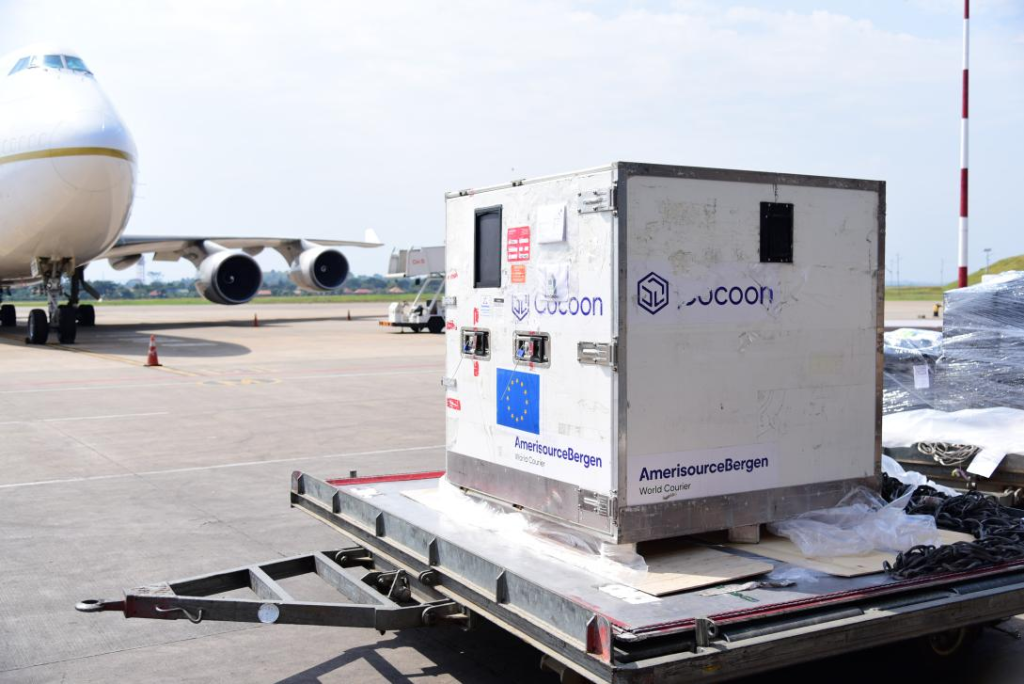The European Commission has stepped in to assist Uganda in its fight against an escalating Mpox outbreak by delivering 10,000 doses of the MVABN® vaccine.
The shipment, facilitated by the Health Emergency Preparedness and Response Authority (HERA), arrived at Entebbe International Airport on Thursday, marking a critical intervention in the country’s efforts to control the viral disease.
Uganda has recorded over 1,000 confirmed Mpox cases since the outbreak was first identified in July 2024.
The rising infections have placed a significant strain on the healthcare system, with fatalities increasing from six to ten within the same period. Authorities have expressed concern as the disease continues to spread across urban and semi-urban areas.

This vaccine delivery is part of a broader initiative by HERA, which has donated more than 215,000 doses to the Africa Centres for Disease Control and Prevention (Africa CDC) to address the ongoing public health challenge across the continent.
“We made a commitment to address the Mpox outbreak in close cooperation with our partners. We cannot fight these health threats alone – solidarity between continents is essential. We will continue to work on all fronts with our partners to ensure protection of vulnerable populations through Team Europe’s global response,” Mr Laurent Muschel, the head of HERA, said.
Similar vaccine shipments were previously sent to the Democratic Republic of Congo and Rwanda, supporting their respective Mpox responses.
The European Commission and its partners have emphasised the importance of international collaboration in tackling health crises. Officials noted that the vaccines are a key step toward containing the outbreak and protecting vulnerable populations.
Mpox, which manifests with symptoms such as fever, swollen lymph nodes, and a distinctive rash, has disproportionately affected Uganda’s Kampala Metropolitan Area.
Reports indicate that over 60% of infections have been recorded there, with Kampala City alone reporting 808 cases and one death. Other affected areas include Wakiso, Mukono, and Nakasongola.


